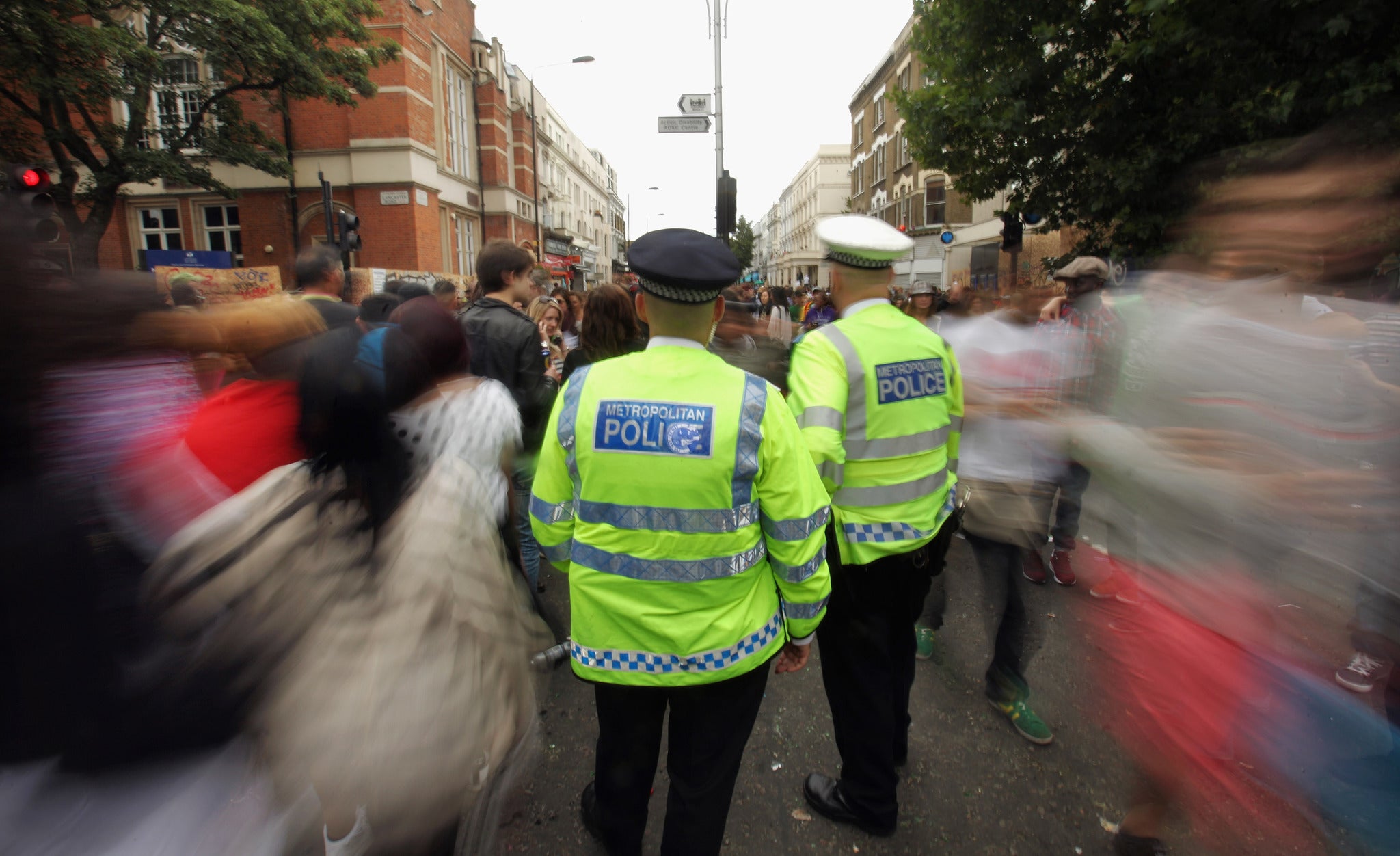Stop-and-search: Police training will challenge 'unconscious bias' of officers to cut down on unlawful use of tactic
Exclusive: Searches disproportionately target people from ethnic minorities

Hundreds of police officers around the country are to have their prejudices challenged by a training programme that aims to reduce discrimination among those using stop-and-search powers, a tactic that disproportionately targets people from ethnic minorities.
The first ever randomised controlled trial of police training in Britain will start next month, when a group of officers will be trained to recognise their personal prejudices and then monitored to see how they use stop-and-search powers. The results will be compared to a control group of officers who have not been given the training.
The new approach has been developed by the College of Policing and the Equality and Human Rights Commission (EHRC), after the Home Secretary, Theresa May, commissioned a review of the way the police are trained – with “unconscious bias” to be monitored as part of new professional standards.
Police officers will be given reading to do which will include a test to detect their own prejudices, ahead of a one-day training course. Written descriptions of different types of people, as well as film footage and photographs, will be used to prompt officers to give their instant reaction to members of the public.
Some 600 officers from six forces – Cleveland, Greater Manchester, Metropolitan, Sussex, Thames Valley and the British Transport Police, – will take part in the training, which is focused on reducing unconscious bias in an attempt to reduce the number of cases where the powers are wrongly used.
More than a quarter of a million stop searches each year could be unlawful, because police fail to show reasonable grounds for suspicion in 27 per cent of cases, according to Her Majesty’s Chief Inspector of Constabulary.
Around 100 officers from each force will take part in the new training programme, and their subsequent use of stop-and-search powers monitored and compared with another group of 100 officers who have not been given the training.
Nick Glynn, stop-and-search lead at the College of Policing, said: “This training will explore the impact of stop and search, examine the effect of unconscious bias and ensure officers work within the rules when stopping members of the public.”
“Unconscious bias”, he said, refers to “certain views, prejudices, stereotypes that we all have about different groups of people, or people with certain characteristics. If you’re not aware of it, you may not be aware that it affects decisions you make around those sorts of people.”
According to Mr Glynn, the aim is “trying to get officers not to operate on autopilot” and not to “allow negative stereotypes to affect decision-making around the use of these highly intrusive powers”.
The College of Policing will report on the results of the trial next year. If successful, forces around the country will be encouraged to adopt it.
“If you can at least get officers to walk out ... at least consciously thinking about it and therefore being more considered in how they are using the powers, then I think we will see an improvement,” said Mr Glynn.
This comes just weeks after The Independent revealed that black people remain the most likely ethnic group to be stopped and searched in virtually every part of England and Wales. An analysis of data from 39 police forces found that, in all but three, black people were targeted more than their white counterparts. In Dorset, they were 17 times more likely to be stopped and searched.
If stop-and-search powers are not used in “a targeted and proportionate way and if innocent people are stopped and searched for no good reason, it is hugely damaging to the relationship between the police and the public”, according to Mike Penning, the policing minister.
Jackie Driver, EHRC programme director for stop and search, said: “We are pleased to be working with the College of Policing to develop a new stop-and-search training programme for officers.” She added: “Ensuring officers understand the importance of applying the rules fairly when stopping members of the public is vital in building and maintaining trust between the police and the communities they serve.”
The new training was welcomed by Taher Gulamhussein, community engagement coordinator at StopWatch, but he said: “It remains to be seen how long term and impactful the training will be, given that it is a one-off six-hour session without specialised trainers.” He added: “In order to be effective, police need sustained long-term training and engagement involving local impacted communities.”